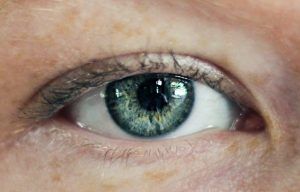Vision Therapy FAQ
Most vision problems DO NOT require surgery for correction. Vision therapy is a form of neuro-rehabilitation to improve function of the visual system. It is scientifically proven to resolve vision problems that can contribute to learning disabilities. Vision therapy also treats lazy eye (amblyopia), crossed eyes (strabismus), double vision and dizziness.
-

Vision therapy enhances neurological connections between the eyes and the brain. Eyes are the windows to the brain. The brain directly influences sight based on how it interprets images received by the eyes. A healthy, coordinated connection between the eyes and the brain is essential for good eyesight.
Common Questions About Vision Therapy:
How does vision therapy work?
Vision therapy works to change the neuro pathways in the brain in order to use the visual system efficiently and effectively. Just as physical therapy is used for rehabilitation, vision therapy activities are used to retrain the brain, where vision occurs. Each therapy procedure is specific to the patient’s diagnosis. It’s never too early or too late for vision therapy as the brain is always adapting and able to build new networks and pathways.
What is the purpose of the vision therapy activities?
Vision therapy improves basic visual skills that connect the eyes to the brain. These exercises improve visual efficiency by changing how a patient interprets images, perceives depth perception, reads and tracks across a page, and aligns their eyes. This helps them see and understand visual information correctly. It also aligns the eyes cosmetically and helps patients experiencing dizziness feel more stable.
Do these exercises simply strengthen eye muscles?
Nothing about vision therapy is centered on strengthening eye muscles. This therapy is all about improving vision problems that may interfere with daily activities by strengthening the neurological pathways between the eyes and the brain.
What is the first step in a vision therapy program?
A comprehensive specialized vision exam is necessary before starting therapy. Following the exam, Dr. Deviney will explain your diagnosis and if vision therapy is an option for you. Therapy is generally once a week in our office.
Is there scientific evidence that it really works?
Data shows that vision therapy improves visual function enough to keep it from interfering with a patient’s ability to absorb information and learn. In its own sphere, this therapy is as effective as physical therapy or occupational therapy. Dr. Fortenbacher’s website for his vision therapy practice in Michigan has a multitude of research papers: http://wowvision.net/research
Who typically needs vision therapy?
Adults and children experiencing visual symptoms need a comprehensive visual examination. Children diagnosed with learning disabilities such as Dyslexia, ADHD, LD, etc. can benefit from an examination to rule out underlying visual issues that interfere with learning. Adults who have suffered a concussion, traumatic brain injury, Meniere’s disease, motion sickness, dizziness, or other visual related symptoms benefit from therapy as well.


